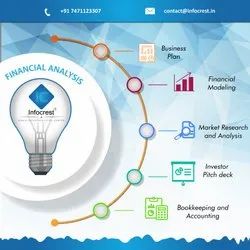
Agricultural consultants provide advice to farmers and ranchers on a variety of agricultural issues. Their advice centers on the production of different crops and livestock, management of water resources, protection of the environment, and other issues. They offer business advice, such as estate planning and waste management. Many agricultural consultants have specialties in particular areas of farming, like agritourism. These tips and resources will help you get started in the field of agricultural consulting.
Job description
A variety of tasks are required for an agricultural consultant. They advise farmers on everything, from machinery and farming methods to pest control and health. Agricultural consultants may assist farmers with business analysis as well as participating in meetings, seminars, and group sessions. They might also manage farms for absentee owners. The job description is available below. Agricultural consultants are able to provide expert advice and research to help improve agricultural processes.
The agricultural consultant must possess excellent communication skills to be successful in this profession. Aside from writing and editing documents they also have to research, manage, and update information. They might also travel frequently during work hours. They work Monday through Thursday, but they may sometimes be required work on weekends or evenings, especially during busy periods. Some consultants may own their own farms. There are many ways that agricultural consultants can progress their careers, depending on their experiences and the organization they work for.

Education Required
Agricultural consultants can be found in many industries, including the agricultural sector, environmental services, food and agriculture. This profession requires a degree or equivalent in soil/earth sciences. Those with previous experience in agriculture are also highly desirable, as is relevant postgraduate qualification. You may need to further your education in niche areas for international work. Agriculturists also have the option to open their own company.
A bachelor's degree is required to become an agricultural consultant. However, the requirements vary. Highly recommended is a graduate degree in a related area, such as agribusiness or environmental science, forestry or natural resource management. However, postgraduate business degrees do not give a consultant an advantage. As a general rule, the education required for an agricultural consultant is similar to that of other agricultural careers.
Experience required
The primary duties of an agricultural consultant are to provide advice to clients regarding various business issues. Their expertise can vary depending on the area they work in, from financial matters to human relationships to management of personnel. They might also be involved in environmental and climatic issues as well production and operation issues. These varied roles will require applicants to be good communicators and have interpersonal skills. A successful agricultural consultant must have a solid knowledge of all aspects of agriculture.
A graduate degree in agricultural sciences will be required to become a successful consultant. You can also set up your own business or apply to multinational companies. You will benefit from your experience in the agriculture industry in order to build a strong reputation. You can apply for positions advertised on general recruitment websites, in agricultural magazines and in agricultural journals to start your own business. Numerous websites also advertise positions as agricultural consultants.

Salary
The job of an agricultural consultant requires a broad knowledge base, including business and agriculture. These consultants often work with clients from different areas and can focus on many issues including production and operations. Agriculturists can earn an average annual salary of $94,745 due to their diverse knowledge. This career is projected to grow by 1% in the next 2029. It is therefore one of most popular occupations in the United States.
Potential clients will require you to share your knowledge as an agricultural consultant. Agricultural consultants work either for consulting firms or individually. Clients will want to see proof that they have had diverse job experiences and moved up the career ladder. It is also advantageous to have experience in specific areas. It will depend on where you live and what government it is. If you have experience in agribusiness, for example, you may be able to charge more.
FAQ
Do I need to pay tax on consulting income?
Yes, tax will be payable on any consultancy profits. The amount depends on how much you earn per year.
If you are self employed, you can claim expenses in addition to your salary. This includes rent and childcare.
However, you can't deduct interest payments for loans, vehicle depreciation or the cost to purchase equipment.
You cannot claim back less than PS10,000 in a given year.
However, even if your earnings exceed this threshold you may still be subject to tax depending on whether or not you are a contractor or an employee.
Employees are generally taxed through PAYE (pay as you earn) and contractors through VAT.
Can you run a business consulting from your home?
Absolutely! Indeed, many consultants already do this.
Many freelancers work remotely via tools such as Skype, Trello and Basecamp. They often create their own office space so they don't miss out on company perks.
Freelancers may prefer to work in libraries or cafes rather than in traditional offices.
Others prefer to work from home as they feel more at home with their families.
Although working from home is a great option, there are some downsides. However, if you love what you do, it is worth considering.
Who hires consultants?
Many businesses hire consultants to assist them with their projects. These can include small businesses and large corporations, government agencies as well non-profits and educational institutions.
Some consultants work directly with these organizations while others freelance. The process of hiring depends on the size and complexity the project.
You will likely go through multiple rounds of interviews when hiring consultants before you choose the candidate you feel is the best fit for the job.
Statistics
- My 10 years of experience and 6-step program have helped over 20 clients boost their sales by an average of 33% in 6 months. (consultingsuccess.com)
- 67% of consultants start their consulting businesses after quitting their jobs, while 33% start while they're still at their jobs. (consultingsuccess.com)
- WHY choose me: Why your ideal client should choose you (ex: 10 years of experience and 6-week program has helped over 20 clients boost their sales by an average of 33% in 6 months). (consultingsuccess.com)
- Over 50% of consultants get their first consulting client through a referral from their network. (consultingsuccess.com)
- According to statistics from the ONS, the UK has around 300,000 consultants, of which around 63,000 professionals work as management consultants. (consultancy.uk)
External Links
How To
How To Start A Consultancy Company, And What Should I Do First?
It's a great way for you to make money online by starting a consulting company. You don’t need to have business experience or invest capital. You can start your own consulting firm by building a website. Once you have a website built, you can start using social media platforms such Instagram and Pinterest to spread the word about you services.
These tools will allow you to create a marketing plan which includes:
-
Creating content (blogs)
-
Building relationships (contacts)
-
Generating Leads (lead generation forms).
-
Selling products through ecommerce websites
Once you've created your marketing strategy, the next step is to find clients who are willing to pay you for your services. Some people prefer to go through networking groups and events, while others prefer to use online methods such as Craigslist, Kijiji, etc. You have the freedom to choose.
Once you have a new client, you need to discuss terms. These could be hourly fees, retainer arrangements, flat-fee contracts, or other types of fees. You need to be clear about what you expect of a client before they accept you as a client.
An hourly contract is the most popular type of contract for consulting services. In this case, you agree to provide certain services at a fixed rate each month or week. You might be able, depending on which service you offer, to negotiate a discount. Before you sign a contract, ensure you understand everything.
Next, you will need to create invoices that you can send to your clients. Invoicing is one of those things that seems simple until you actually try it. There are many ways that you can invoice your clients depending on what your preferences are. For instance, some prefer their invoices to be emailed directly to clients while others prefer hard copies to be mailed. No matter which method you choose to use, it is important that it works for you.
Once you have created invoices, it is time to collect the payments. PayPal is the most popular payment option because it's easy to use and provides multiple payment options. You can also use Square Cash, Square Cash (Google Wallet), Square Cash, Square Cash, Apple Pay and Venmo as payment processors.
Once you're ready and able to collect payments, you should set up bank accounts. Separate savings and checking accounts will allow you to track your income and expenses independently. Setting up automatic transfers into your bank account is also helpful when paying bills.
It can seem daunting to start a consulting business. But once you understand how it works, it becomes second nature. You can read our blog post to learn more about how to start a consultancy business.
It's a great way for extra income without having to worry about hiring employees. Consultants can work remotely so they don't have the hassle of dealing with office politics and long working hours. Remote employees have more flexibility because they are not bound by regular work hours.